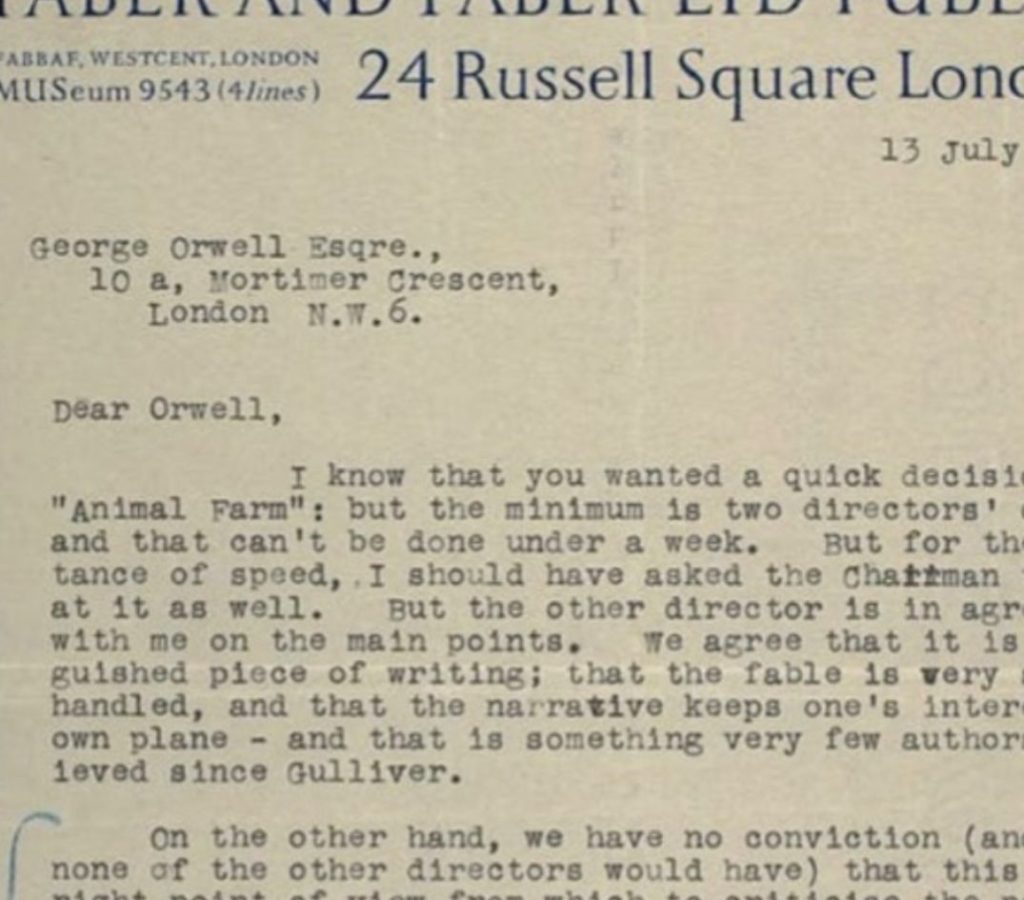Blog by Jane Smillie, guest at the Micro-Memoirs Retreat, August 2025
Just back from a residential micro memoir writing course at Sheepwash, expertly tutored by Margarita Gokun Silver, I came across this letter.
Good to know that literary giants have had the thumbs down before achieving success.
Another reminder how hard it can be to get published.
But the company and support of fellow writers are essential and fun! Take away messages from the course were: keep writing, enjoy it, listen to people who ‘know stuff’ and stay positive, oh and keep booking up courses where you get pampered and looked after and get the space and time to write!
Enjoy.
Jane
TS Eliot was regarded as aloof and remote. A bit like his poetry. A bit like the tone of this letter. He was working as both a director and an editor at Faber and Faber during World War II. He had consigned WH Auden’s poems and Joyce’s Ulysses to the reject pile, too, when he received the submission from Orwell of his new novel, Animal Farm.
Orwell had already had ‘Homage to Catalonia’ published. He was anti-fascist but foremost anti-establishment. Who can argue with ‘All animals are equal but some are more equal than others’? Would Stalin really have taken offence at ‘Animal Farm’? Would Orwell have been sent to the Gulag, or was that Eliot’s fear for himself?
Any cryptic crossword solver knows that TS Eliot is a lavatorial anagram. Appropriate, then, that he chose to send great authors down the pan….

Read the full letter here.
Thanks to Jane for this! Fascinating isn’t it.
George Orwell’s Animal Farm might have been dismissed by Eliot as “too controversial” in the middle of World War Two, because Orwell’s treatment of the Soviet Union might have proved problematic given Britain’s alliance with Stalin during World War Two. But also Eliot thought it too dark – how different the book would have been if Orwell had capitulated to the criticism that the story lacked “positive suggestions” for a better system to replace the one it critiqued.
But the rest is history – Orwell ignored the rejection letter from Faber & Faber and tried elsewhere. It was published a year later in 1945, by Secker and Warburg and became one of the century’s defining novels, despite early warnings that “animal stories don’t sell in America”!
To read the next Blog – 10 famous authors who overcame rejection to make history, go here.
And for the latest retreats and workshops available, booking now through 2026 as well as late 2025, go here or WhatsApp Debbie on (079 49) 052 208.
Best wishes and hope your writing is going well this summer. Hope to see you at some stage in the future, don’t hesitate to contact us with a booking query.
Debbie

